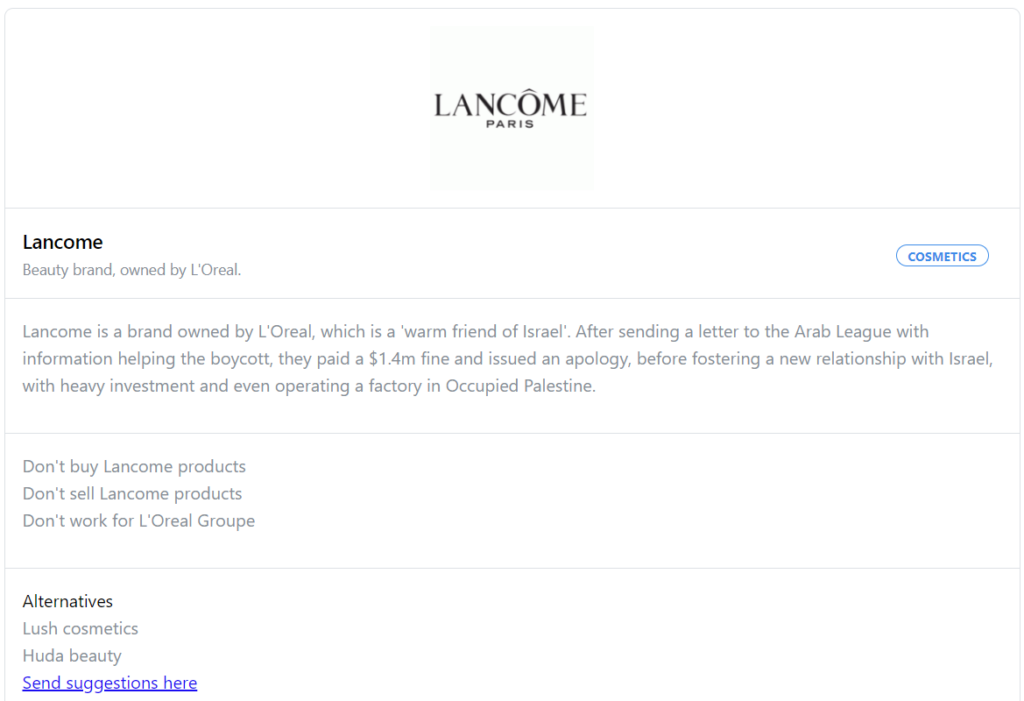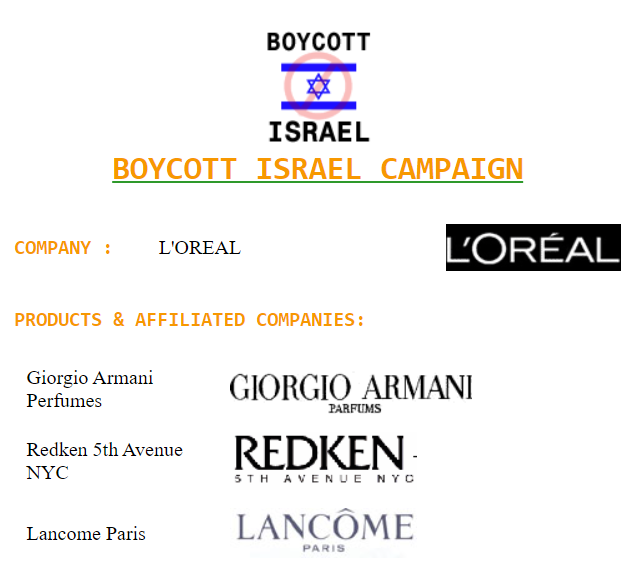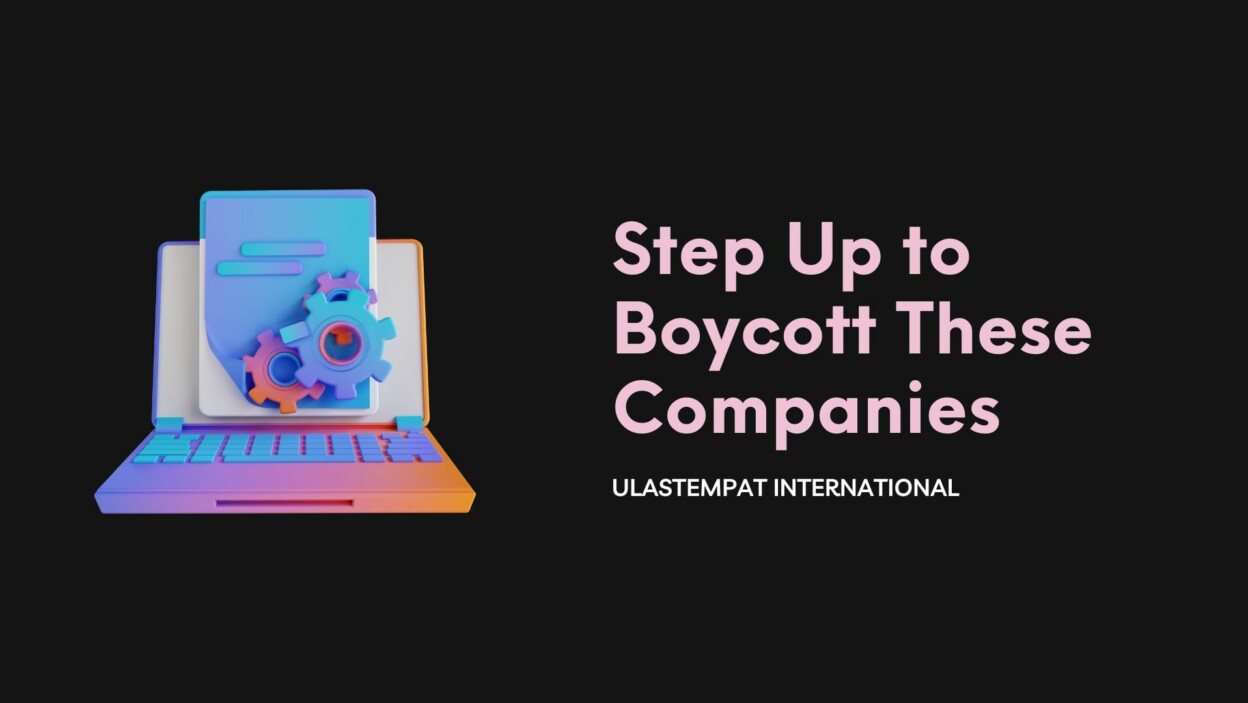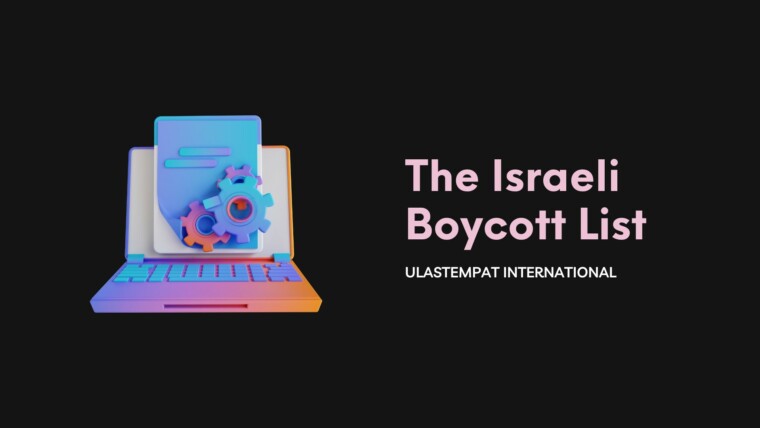L’Oreal, a global giant in the beauty industry, touts its significant investments and partnerships in Israel as a testament to its thriving commercial ventures in the Middle East. However, beneath the veneer of prosperity lies a troubling narrative of ethical compromise and complicity in human rights violations.
From cozy relationships with the Israeli government to ventures in Occupied Palestine, the story behind L’Oreal’s involvement in Israel raises critical questions about corporate responsibility and ethical business practices.

Also See: The Mountain Dew – Israel Connection Unraveled
L’Oreal’s Operations in Israel
Lancome, a brand under L’Oreal’s umbrella, has a murky history. Their attempt to navigate the Arab League boycott resulted in a hefty fine and an apology. Yet, this supposed remorse swiftly transformed into heavy investments in Israel, including setting up shop in Occupied Palestine. This move, veiled as progress, speaks volumes about their priorities—profits over principles.
The company’s operations in Migdal Ha’emek, built on land once belonging to the ethnically cleansed Palestinian village of al-Mujaydil, serve as a bitter reminder of the displacement and denial of rights faced by the original inhabitants. L’Oreal’s exploitation of Dead Sea minerals, a significant portion of which lies in the Israeli-occupied West Bank, further underscores their disregard for Palestinian rights. While Palestinians are systematically denied access to the resources of the Dead Sea, Israel profits from international tourism and mining, perpetuating its image while suppressing an entire population.
The connections don’t end there. L’Oreal’s support for the Weizmann Institute of Science, known for its involvement in clandestine research and development of weapons for the Israeli military, aligns them with institutions complicit in human rights violations. This association directly contradicts international law and supports a system that oppresses Palestinian rights.
Therefore, it’s evident that behind L’Oreal’s façade of innovation and commerce lies a web of alliances contributing to the oppression and denial of rights to the Palestinian people. A conscientious consumer might consider alternatives like Lush cosmetics or Huda beauty, brands not entangled in such morally questionable associations. Furthermore, a call to abstain from supporting L’Oreal Groupe in any capacity resonates with the stance against complicity in such egregious actions.

Explore More: New Balance’s Support for Israel: Examining the Details
The intricacies of L’Oreal’s engagements in Israel extend beyond the world of cosmetics. Consumers are confronted with a crucial decision—whether to support a conglomerate entangled in ethically questionable partnerships or to choose alternatives that align with values of human rights and ethical business practices.
As the veil lifts on L’Oreal’s operations, it’s evident that consumer choices wield immense power in shaping corporate accountability and societal ethics. The call for conscientious decision-making rings loud—to opt for brands that not only enhance external beauty but also uphold integrity and ethical standards.



Does Red Bull Support Israel? Decoding the Unraveled Connection
Companies That Support Israel: A List to Avoid
Fast Food Chains Aligned with Israel Support
Boycott List: Fashion Companies Supporting Israel You Should Be Aware Of
Does These Firearms Support Israel? Exploring the Unraveled Connection
Does These Tech Brands Support Israel? Decoding the Unraveled Connection
Does These Filmography Support Israel? Understanding the Intricate Ties
Does These Online Business Support Israel? Exploring the Unraveled Connection